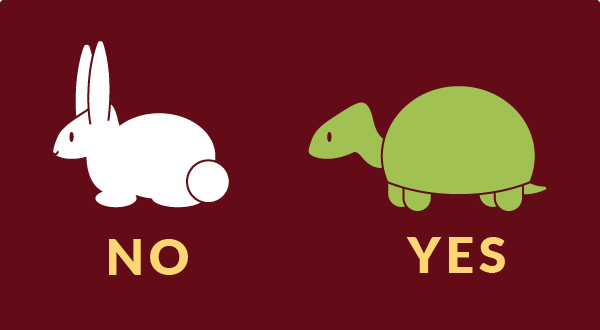Wil Schroter

Startups feel like sprints in the beginning, but for any of us who have done this before, we've learned that it's a marathon.
We're judged by our speed when we start — and our endurance when, and if, we finish.
When Does "Pacing" Ourselves Start to Matter?
Not in the beginning. In the beginning, it's full sprint all the time — or at least that's the way it feels. We've got a headful of energy and we're ready to tackle every problem with longer nights and more stress.
But it doesn't take more than a year or two before those late nights and sustained stress start to run us down. Getting fired up over every last problem, and the stress that comes with it, begins to burn our cortisol levels to a dangerously low point.
At that point, the sprinter in us starts to watch the paced jogger sail right past us.
We Can't Use Up All of our Hit Points on a Single Boss Battle
The hardest thing to do is realize that whatever evil boss we have to beat at this level (video game analogy, folks) there will be another.
And another. And another.
There's no final level where we knock out Mike Tyson and win the game. It's just endless bouts with Piston Honda.
When I come home from work and explain my day, my wife often responds, "Why aren't you more worked up about this?" to which I respond, "Because if I spend all my energy on this, I won't have enough energy for the next problem, and the one after that."
Pacing is All About Managing our Extra Output
Pacing isn't about slowing down, per se. It's about recognizing that we can't go nuts over every situation (burning our stress levels) and we can't run non-stop without rest.
Can we work a 100-hour week? Yes, and sometimes that's just what's necessary. But can we work them for months? Years? Not terribly effectively.
At some point the extra effort drives real cost that prevents us from really performing over a long period of time, which is what's required to make a startup successful (think 7 to 10 years, not 24 months).
Startup Founders need to learn pacing, not sprinting. Anyone can sprint. The winners run marathons.
In Case You Missed It
Don’t Work Long Hours, Work Efficient Hours. As Founders, we should stop being "long hours" champions and instead start being proud of how much we can do in as few hours as possible.
How Much Should I Be Working? (podcast). Wil and Ryan take a deep dive into the benefits of thinking quality and not quantity when it comes to your weekly punch card.
Optimizing for Productivity. Working through peak productivity is easy. It’s the valleys that we’re concerned about. They key is to plan for and optimize the valleys so we can recharge effectively.
Find this article helpful?
This is just a small sample! Register to unlock our in-depth courses, hundreds of video courses, and a library of playbooks and articles to grow your startup fast. Let us Let us show you!
Submission confirms agreement to our Terms of Service and Privacy Policy.
Already a member? Login
Start a Membership to join the discussion.
Already a member? Login

Video Marketing Blaster is a great remedy for those first-timers, video entrepreneurs, as well as affiliate marketers who wish to understand http://videorankingreviews.com/ blog.